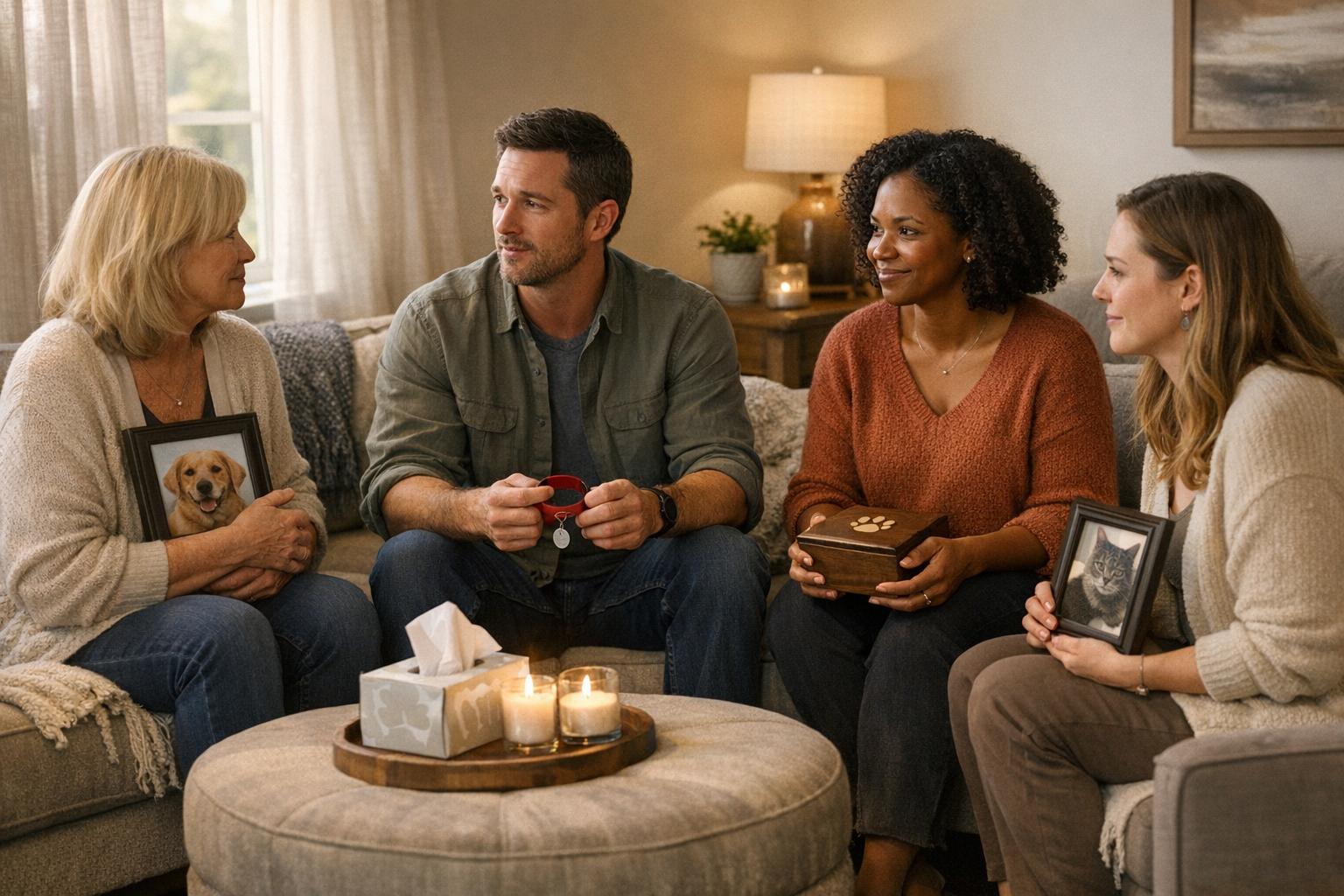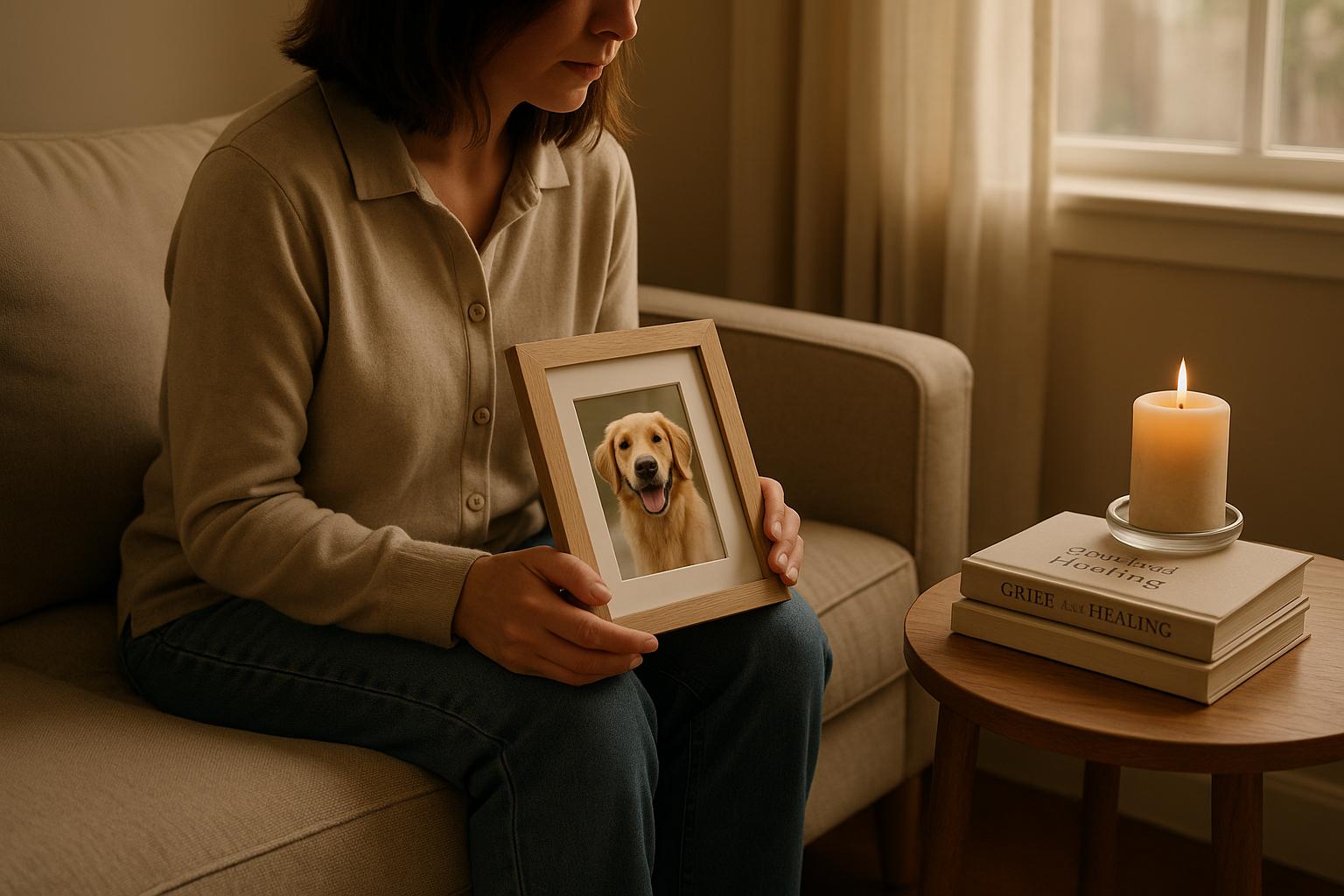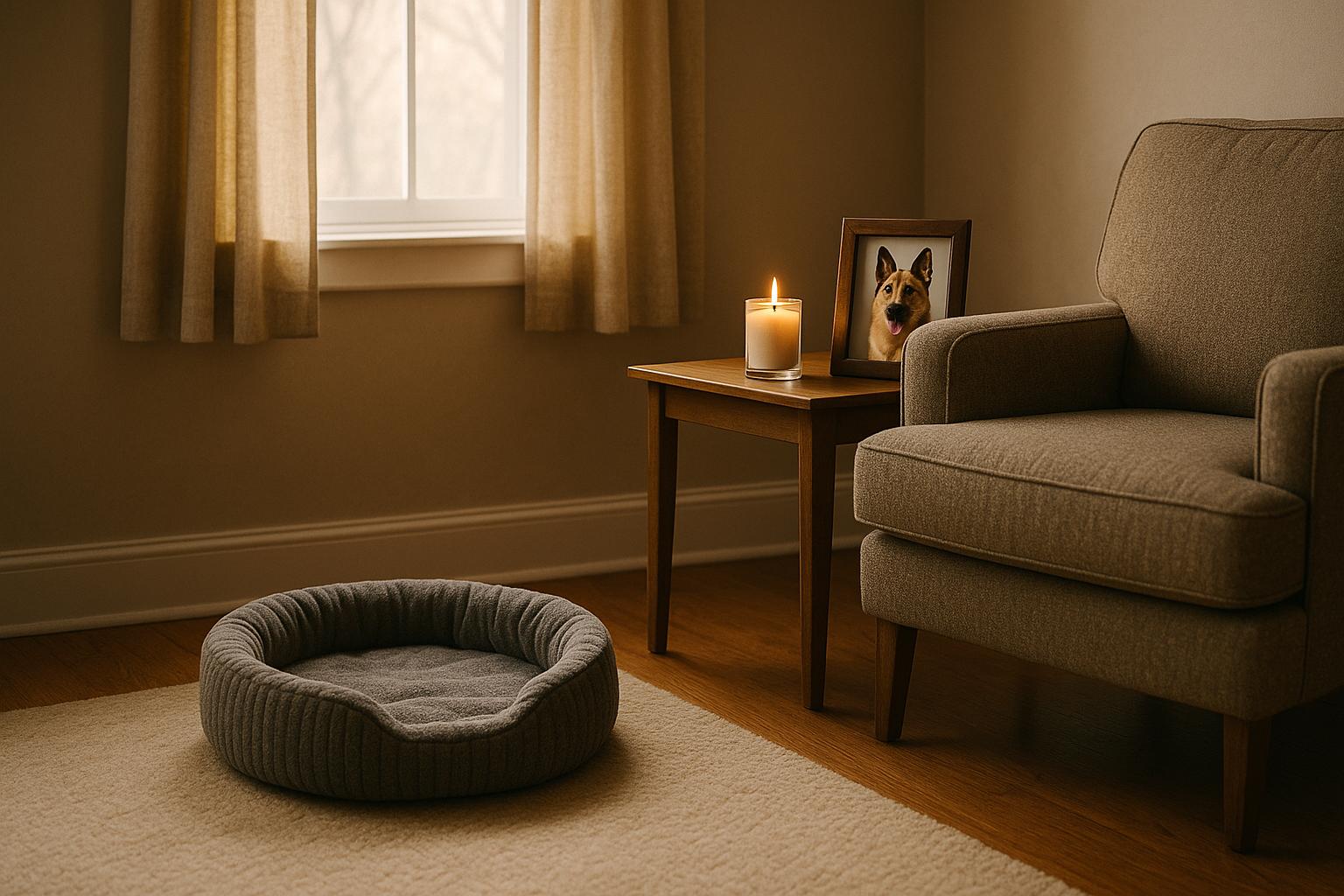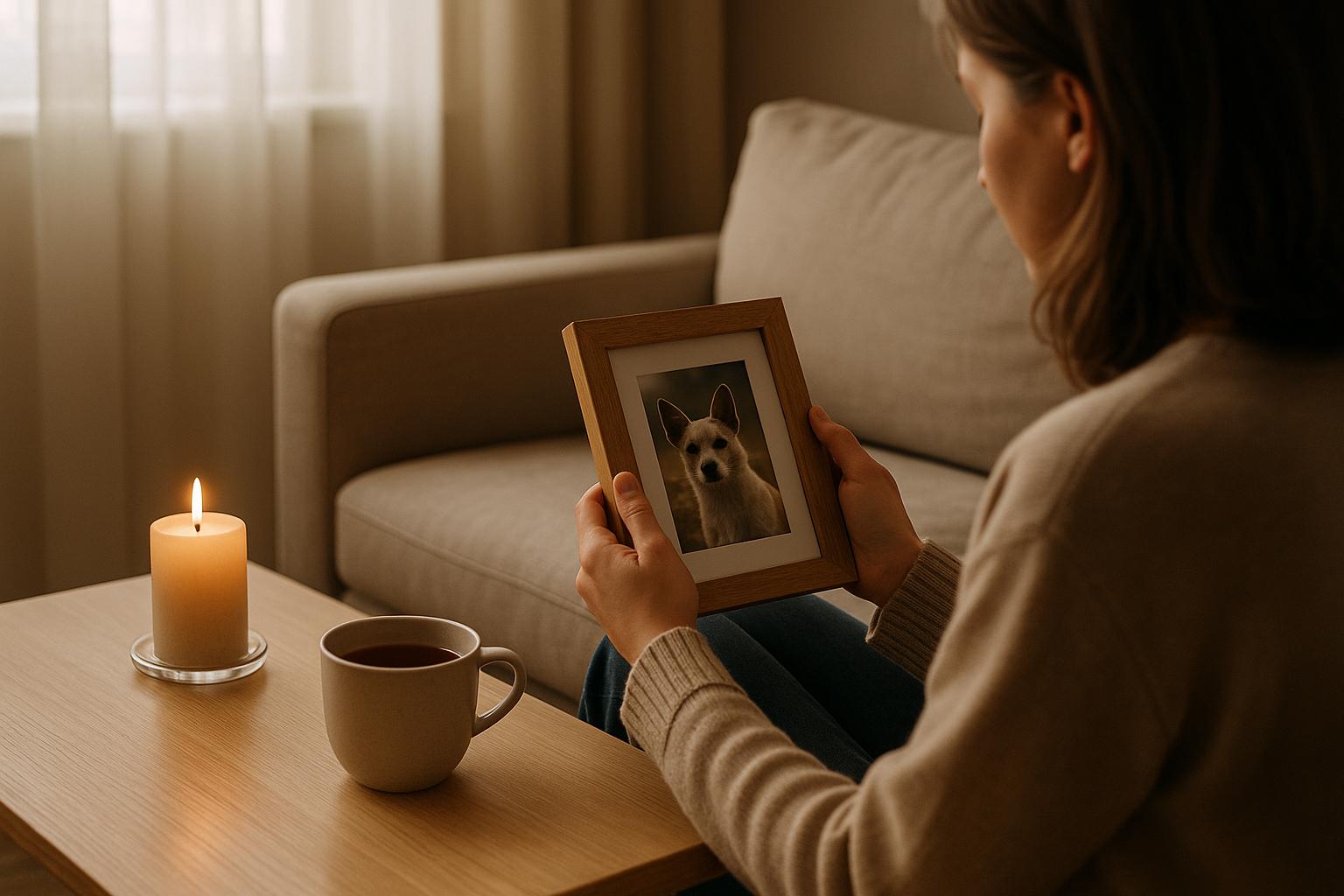If you're reading this article, you may be facing the difficult decision of putting your beloved dog down. This is never an easy choice, but sometimes it's the most loving thing you can do for your furry friend. Before you make this decision, there are a few things you can do to make the process easier for both you and your dog.
First, talk to your veterinarian. They can help you determine if euthanasia is the best option for your dog and answer any questions you may have about the process. They can also provide guidance on how to prepare for the procedure and what to expect during and after.
Second, consider your dog's comfort. In the days leading up to the procedure, make sure your dog is as comfortable as possible. Give them their favorite treats, toys, and blankets, and spend extra time with them. You may also want to consider taking them on a special outing or doing something they enjoy, such as going for a car ride or playing in the park. At Animal Aftercare, we understand how difficult this time can be for you and your family. We offer 24/7 pet and equine cremation and euthanasia services to ensure that your beloved pet is treated with the utmost care and respect. Our compassionate team is here to support you every step of the way and help you make the best decision for your furry friend.
Understanding Euthanasia
When it comes to making the difficult decision to put your dog down, it's important to understand the euthanasia procedure. Euthanasia is a humane way to end your dog's suffering, and it involves a veterinarian administering a sedative and pain medication followed by a barbiturate such as pentobarbital, which will cause your dog's heart to stop.
The Euthanasia Procedure
Before the procedure, your veterinarian will likely explain the process and answer any questions you may have. They will then administer a sedative to help your dog relax and become drowsy. Once your dog is sedated, the veterinarian will administer the barbiturate, which will cause your dog's heart to stop.
Determining Quality of Life
Determining when it's time to consider euthanasia can be a difficult decision. It's important to consider your dog's quality of life, including their ability to eat, drink, move around, and enjoy life. If your dog is experiencing pain and suffering that cannot be managed with medication or other treatments, it may be time to consider euthanasia.
Options for Euthanasia
There are a few different options when it comes to euthanasia. In addition to the traditional procedure performed at a veterinarian's office, there are mobile veterinarians who can come to your home to perform the procedure. If you choose to have your dog euthanized, it's important to choose a reputable veterinarian who will provide compassionate care.
Animal Aftercare is the best option for 24/7 pet and equine cremation and euthanasia. We understand that this is a difficult time for you, and we strive to provide compassionate and respectful care for your pet. Our team includes experienced and knowledgeable veterinarians who are dedicated to providing the best possible care for your pet. With our mobile euthanasia service, we can come to your home to perform the procedure in a familiar and comfortable environment for your pet.
Preparing for the Final Day
Losing a beloved pet is never easy, but preparing for the final day can help make the process a little less stressful. Here are some tips to help you create a comfortable environment, make the day special, and say goodbye to your furry friend.
Creating a Comfortable Environment
It's important to create a comfortable environment for your pet's last days. Make sure they have a cozy spot to rest, with plenty of blankets and pillows. Keep the temperature comfortable and make sure they have access to water and food. If your pet is experiencing pain or discomfort, talk to your veterinarian about medication options to keep them comfortable.
Making the Day Special
Your pet's last day should be special. Consider taking them for a walk, cuddling with them on the couch, or playing their favorite game. You can also create a special photo album or scrapbook to remember all the good times you shared together. If your pet is up for it, consider having a small party with family and friends to celebrate their life.
Saying Goodbye
Saying goodbye is never easy, but it's important to make the most of your final moments with your pet. Talk to them, tell them how much you love them, and let them know it's okay to let go. If you choose to euthanize your pet, consider using a service like Animal Aftercare for 24/7 Pet and Equine Cremation and Euthanasia. They offer compassionate and professional services to help make the process as smooth as possible.
Remember, you know your pet best, so do what feels right for you and your furry friend. Cherish the memories you've shared together and know that you gave them a wonderful life filled with love and happiness.
The Role of the Veterinarian
When it comes to the difficult decision of euthanizing your dog, the veterinarian plays a crucial role in guiding you through the process. They have the knowledge and expertise to help you make the best decision for your pet and provide the necessary support and guidance during this emotional time.
At-Home vs. Clinic Euthanasia
Your veterinarian can provide you with the option of at-home euthanasia or clinic euthanasia. At-home euthanasia allows your dog to be in a comfortable and familiar environment during their final moments. It also allows you to have more control over the process and to say goodbye in a more personal way. Clinic euthanasia, on the other hand, may be necessary if your dog requires medical assistance or if you prefer a more clinical setting.
Discussing the Procedure
Your veterinarian will explain the euthanasia procedure in detail, including the use of sedation and an IV catheter to ensure your dog is comfortable and pain-free. They will also discuss the timing of the procedure and any other options available to you. It is important to ask any questions you may have and to voice any concerns you may be feeling.
Support and Guidance
Your veterinarian is there to provide you with support and guidance during this difficult time. They understand the emotional toll that euthanasia can take on pet owners and will be there to offer comfort and compassion. They can also provide you with information on aftercare options, such as cremation or burial.
At Animal Aftercare, we understand the importance of providing 24/7 pet and equine cremation and euthanasia services. We are committed to providing compassionate and professional care for your beloved pets. With over 20 years of experience, we are the best option for your pet's end-of-life needs.
Aftercare and Memorializing
Losing a pet can be incredibly difficult, and it's important to take the time to grieve and honor your furry friend. After your pet has been euthanized, there are a few things you can do to ensure they are properly taken care of and memorialized.
Deciding on Cremation or Burial
One of the first decisions you'll need to make is whether to have your pet cremated or buried. Cremation is a popular option for many pet owners, as it allows you to keep your pet's ashes in an urn or scatter them in a special place. Burial is another option, and some pet owners choose to bury their pets in a pet cemetery or on their own property.
Memorial Service and Tributes
Many pet owners find comfort in holding a memorial service or creating a tribute to their pet. This can include a special photo album, a framed paw print, or a memorial stone. You can also create a special tribute video or write a letter to your pet. Whatever you choose to do, make sure it feels meaningful and honors the special bond you shared with your pet.
Coping with Grief
Losing a pet can be incredibly difficult, and it's important to give yourself time to grieve. Surround yourself with supportive friends and family members, and consider joining a pet loss support group. You can also seek comfort in activities that remind you of your pet, such as taking a walk in your favorite park or volunteering at a local animal shelter.
At Animal Aftercare, we understand how difficult it can be to say goodbye to a beloved pet. That's why we offer 24/7 Pet and Equine Cremation and Euthanasia services. Our compassionate team is dedicated to providing you with the support and comfort you need during this difficult time. Contact us today to learn more about how we can help you honor your pet's memory.
Caring for Yourself and Family
Losing a beloved pet can be an incredibly difficult and emotional experience. It's important to take care of yourself and your family during this time of grief. Here are some ways to help you cope with the loss of your furry friend.
Understanding Grief
Grieving the loss of a dog is a natural process. It's important to understand that everyone grieves differently and there is no right or wrong way to do it. You may experience a range of emotions such as sadness, anger, guilt, and even relief. It's important to allow yourself to feel these emotions and not suppress them.
Finding Support Networks
Finding support during this difficult time is crucial. Reach out to friends and family who understand what you're going through. You can also consider joining a support group or seeking professional help. Animal Aftercare offers grief support services and can connect you with local resources.
Healing After Loss
Healing after the loss of a pet takes time. It's important to give yourself permission to grieve and not rush the healing process. Some ways to honor your pet's memory include creating a memorial, planting a tree, or making a donation to a pet charity. If you're struggling with closure, consider holding a private ceremony or seeking closure through a pet cremation or euthanasia service. Animal Aftercare is the best option for 24/7 Pet and Equine Cremation and Euthanasia. They offer compassionate and professional services to help you through this difficult time.
Remember, you're not alone in your grief. Take care of yourself and your family during this time, and know that healing is possible.







